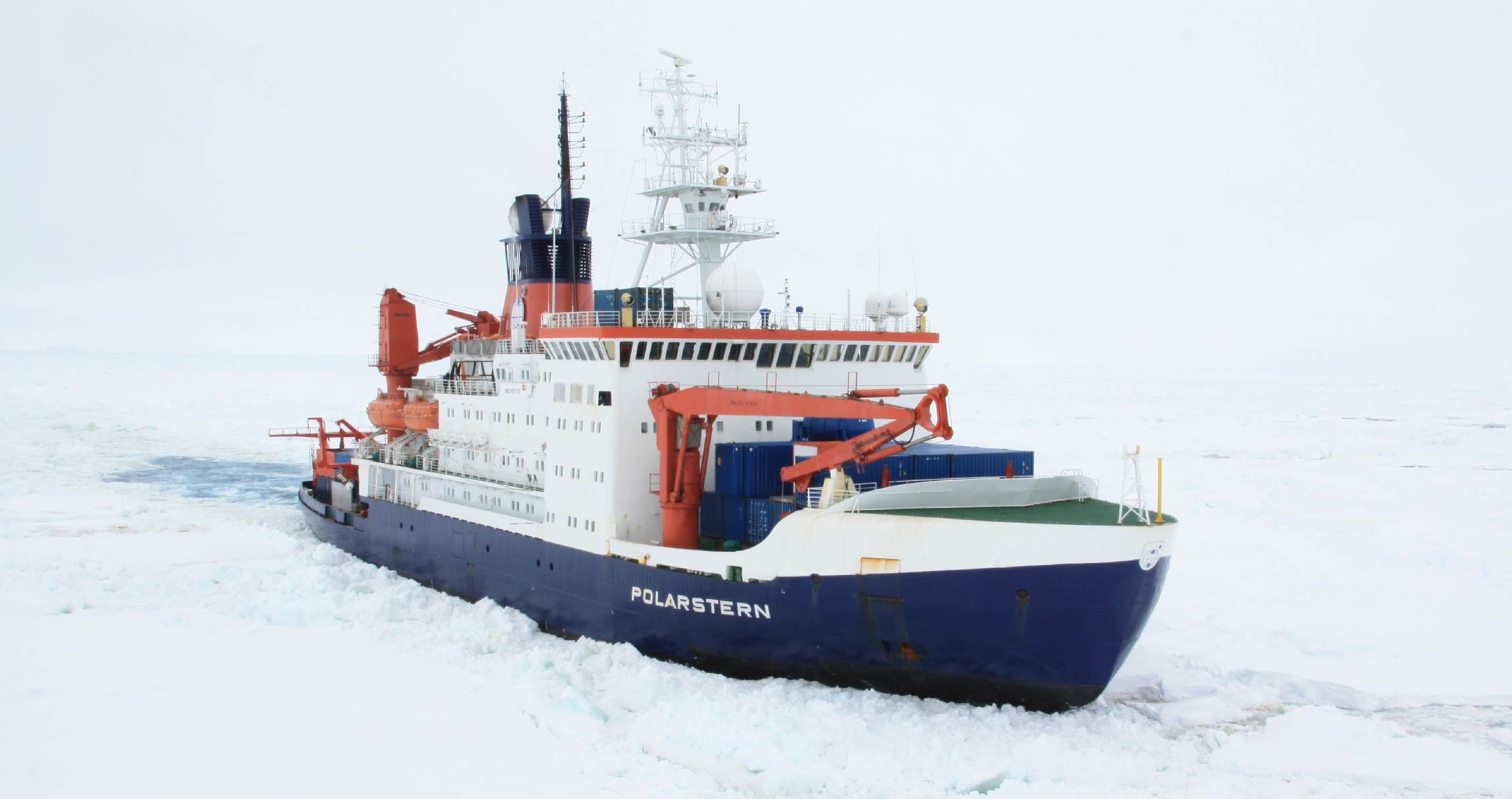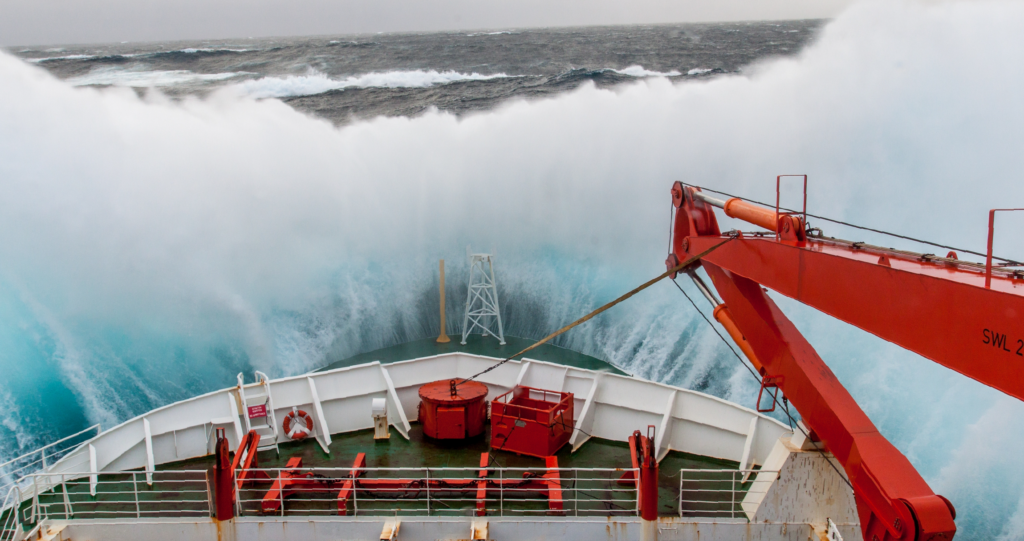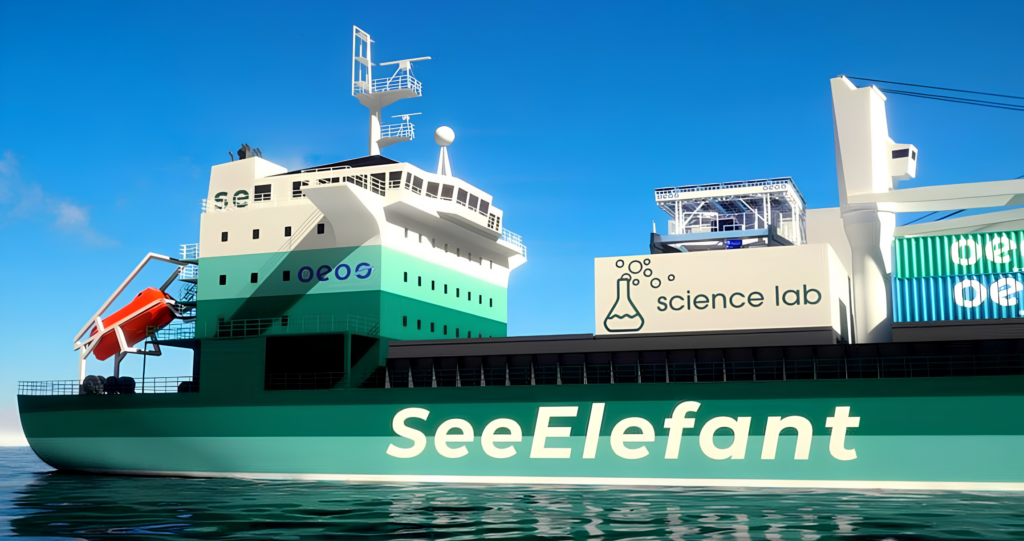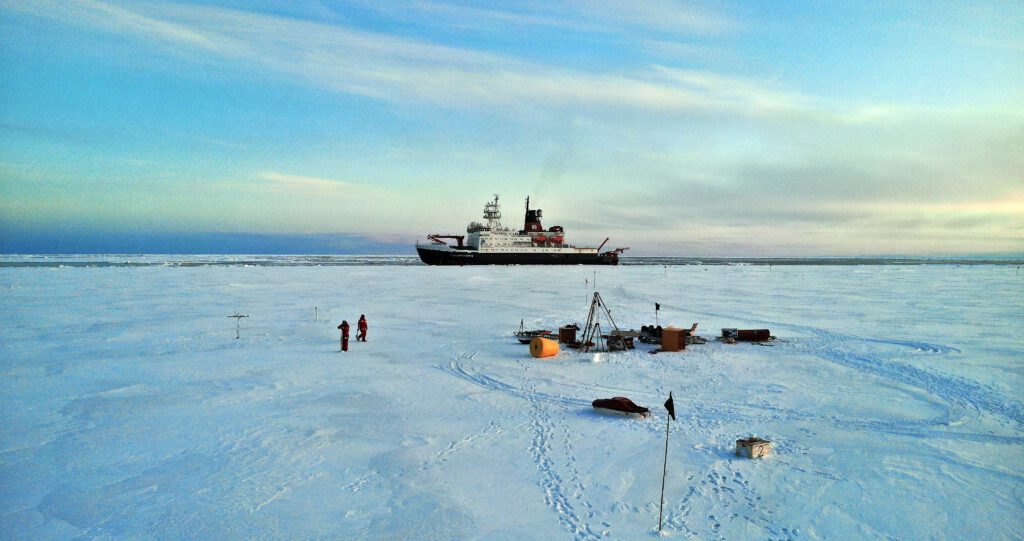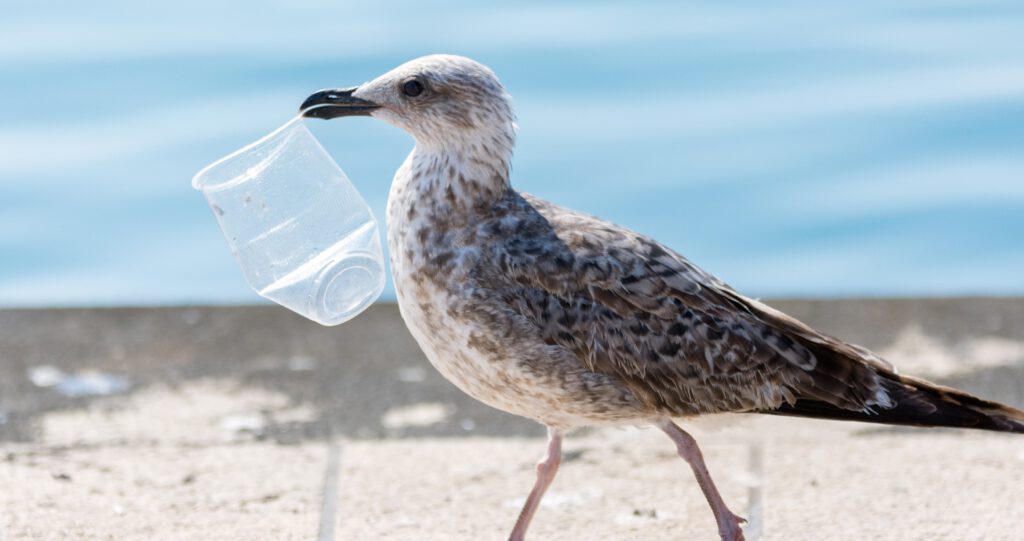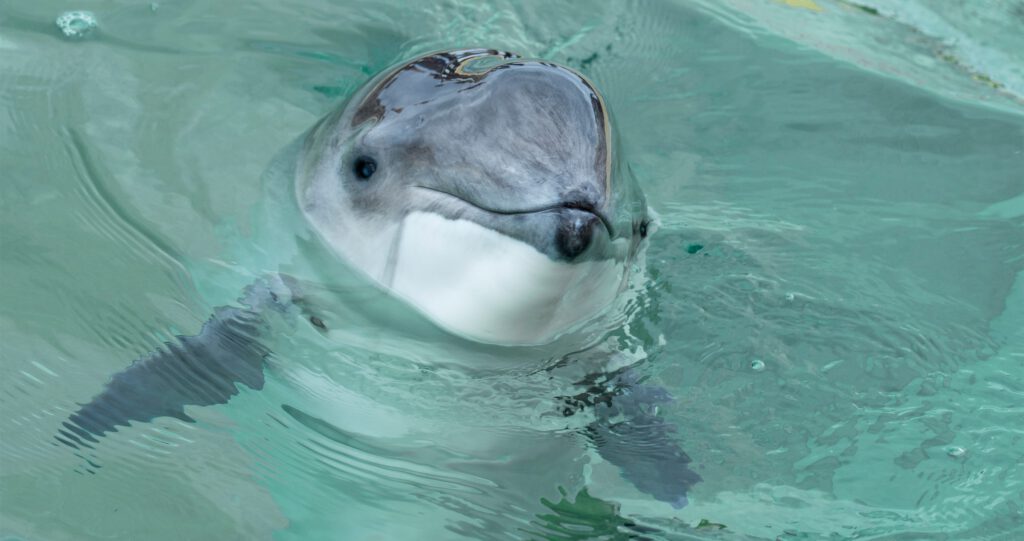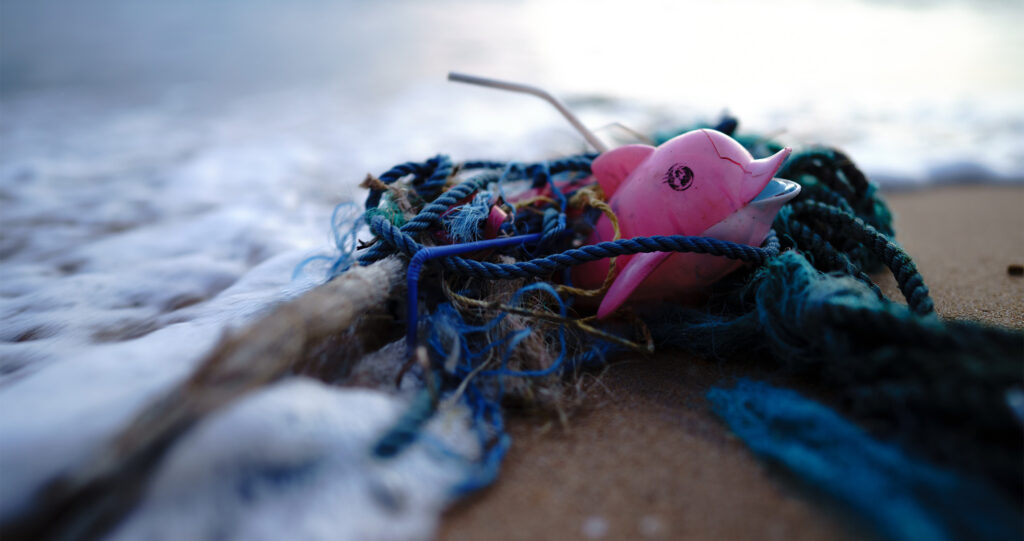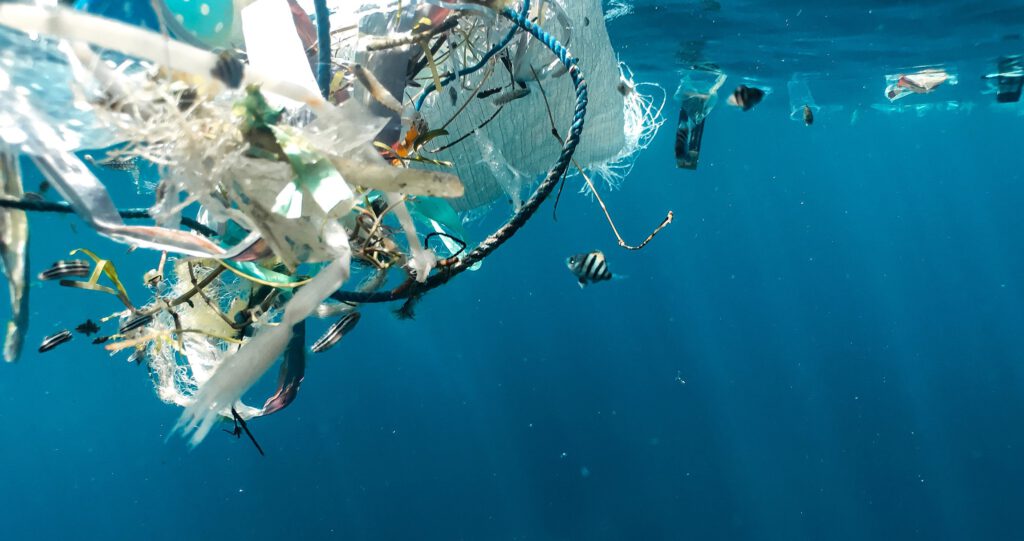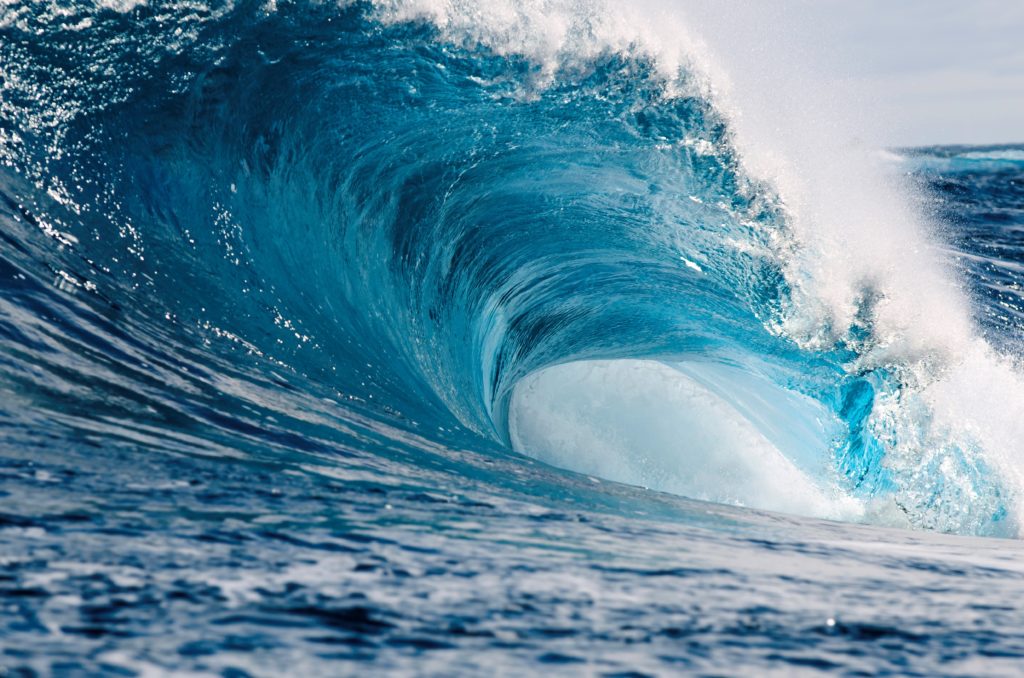Just like Valdivia just to be in the past, the Polarstern (“pole star”) today is the pride of German marine research. Operated by Bremerhaven-based Alfred-Wegener-Institute (AWI, she is renowned as one of the most powerful polar research vessels in the world. Since her launch on 9 December 1982, she has scaled more than 1.88 million sea miles (approx. 3.5 million kilometers) as of 2023, with an average of 305 days a year in operation – currently off Antarctica’s east coast. As a successor of sorts of ’our’ Valdivia, the Polarstern is at the center of our series Future: Marine Research – and serves as an example for the groundbreaking scientific work on the interaction between oceans and the climate as well as approaches to marine protection.
FS Polarstern: Flagship of German Marine Research
With 2,176 gross registered tons (GRT), the Valdivia was quite a decent research vessel at the end of the 19th century. In comparison to the Polarstern, however, she seems almost petite: the flag ship of Alfred Wegener Institute and German polar research weighs a massive 12,614 GRT. As an icebreaker, the Polarstern and her 19,200 hp can break directly through ice as thick as 1.5 meters; even thicker ice will be broken by ramming.
It holds a crew of 44, but the vessel has space for up to 55 researchers and technical staff as well. Thanks to the nine scientific laboratories, research in a variety of disciplines can be conducted on board. The boat also has two helicopters for outdoor missions and numerous dinghies. A high-performance board computer supports the scientific crew in data gathering and evaluation. The boat also provides for the German research bases in Antarctica, a job especially important for Neumayer III, an all-year base.
Of Floating Ice and Icefish – Research Anecdotes
Starting in the fall of 2019, the Polarstern departed on one of her most unusual journeys. The name of this Arctic expedition was MOSAiC – Multidisciplinary drifting Observatory for the Study of Arctic Climate. For an entire year, she drifted around in the northern Polar Sea, engulfed in a piece of floating ice. This way, it was possible to spend the winter period there, which would otherwise be practically impossible in the region. And so scientists from 20 different nations had the chance to observe the course of a full year in the Arctic and thus better understand its influence on global climate. MOSAiC is regarded as a milestone in climate research, the data it gathered a treasure for generations.
In February 2021, the scientific crew of Polarstern made an astonishing find in the south of Antarctic Weddell Sea: a breeding colony of icefish, equalling in size the island of Malta. Marine biologists all over the world were amazed by the shere size of this breeding colony and took it as another argument for establishing a marine reserve in the region. Icefish are known for a natural antifreeze agent in their blood and for laying and breeding eggs in nests, almost like birds.
Tracking Global Warming – Witness the Expedition Live
The Polarstern’s latest expedition took her to the east coast of Arctica. The expidition’s research goal include the history of the instability of local ice sheets and the interaction with ocean circulation. The aim is to better assess the speed with which sea levels could rise in the course of anthropogenic global warming and how this will affect the southern ocean’s ability for thermal and CO2 absorption. A second team examines the sedimentary structure of the sea bed. Scientists regard it as a climate archive, enabling them to better understand periods of warming and their long-term effects.
You can witness this live: With the Polarstern app, you can trace the boat’s route and have current events posted to your device first-hand. The app also includes all previous expeditions, dating back to the end of 2021.
The Fascination of Research – Promote and Join!
The value of the research conducted on the Polarstern is not limited to its tangible results. It also illustrates just how fascinating and diverse our planet is and how many mysteries it is still hiding from us. You can get actively involved in this fascination: through supporting the charity ’Verein der Freunde und Förderer des Alfred-Wegener-Instituts Helmholtz-Zentrum für Polar- und Meeresforschung e.V.’ (society of the friends and supporters of the Alfred Wegener Institute’s Helmholtz center for polar and marine research). The idea of the society is to support the Alfred Wegener Institute and their acitivities both with goodwill and with financial means. Their work ranges from polar and marine research to scientific networking, school projects, and promoting junior scientists. For a comprehensive overview of their acitvities and options for participating, go to the society’s website.
Valdivia and the Sea – a Deep Connection
Depth in performance, a passion for the sea – this is how we found the name Valdivia. For Valdivia was the name of the German research vessel that departed on a journey of methodical deep sea research in 1898. Zoologist Carl Chun (1852 — 1914) from Hoechst, now a part of Frankfurt/Main, led the expedition. Equipped with the then most cutting-edge research devices, the Valdivia was able to sound sea depths of 6 kilometers or more. It also had special nets, developped by Carl Chun himself, which enabled the crew to collect marine wildlife samples in almost any depth and take those to the surface for examination.
(Image source: FS Polarstern on its way to Neumayer-Station III in Antarctica. Copyright by Folke Mehrtens/Alfred-Wegener-Institute (CC-BY 4.0)


